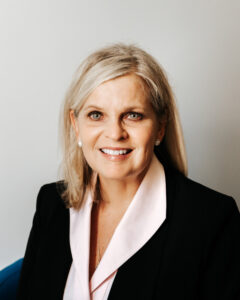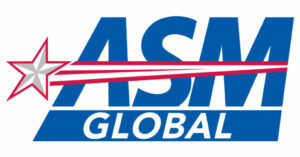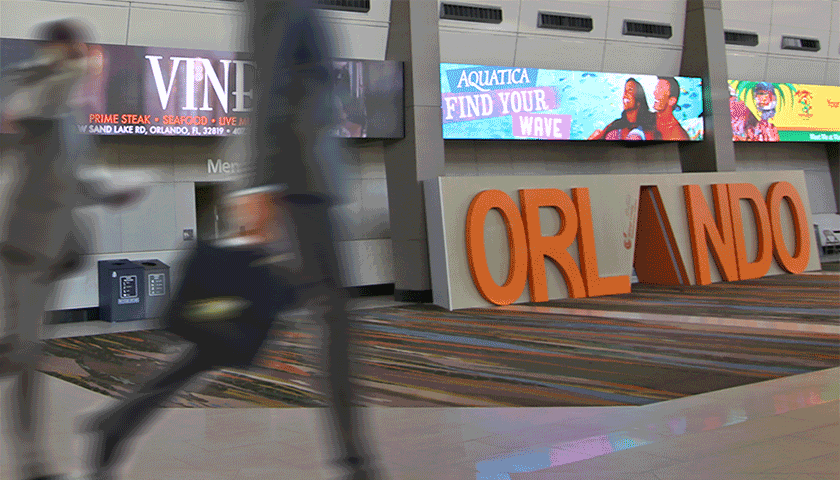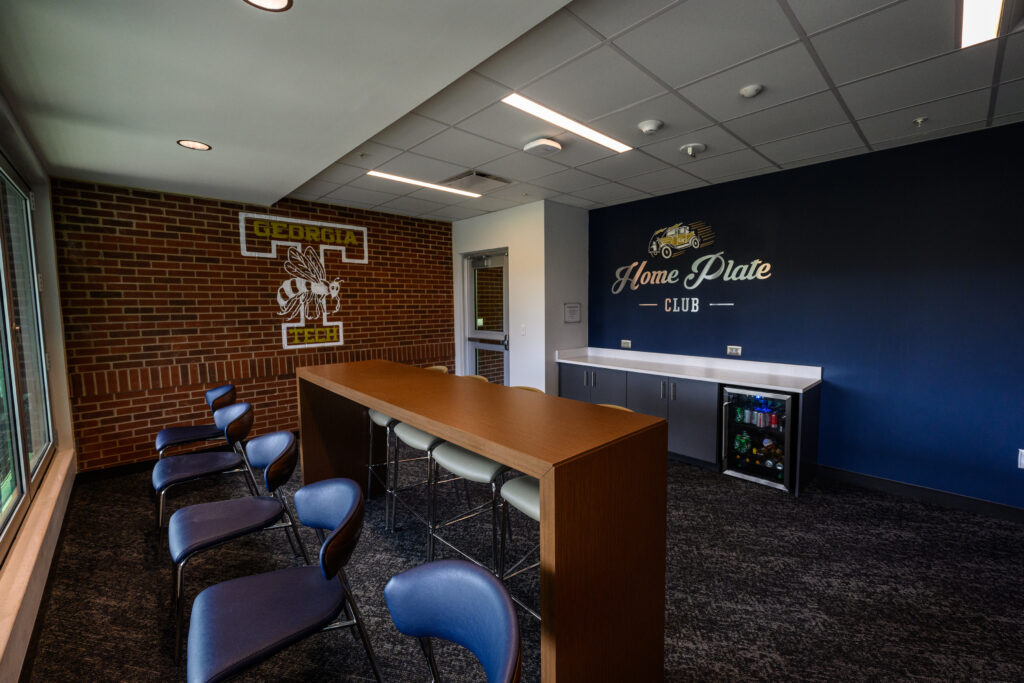Smith Seckman Reid Announces Change in Executive Leadership
By Lauren Dean
Nashville based engineering and consulting firm Smith Seckman Reid, Inc. (SSR) has announced changes to its executive leadership structure. CEO and President, Steve Lane, PE, BCEE, FACEC, announced that the SSR Board of Directors promoted Susan Osterberg to Chief Operating Officer (COO) and Mike Rogers, PE, LEED AP, to Chief Growth Officer (CGO). Lane stated that the moves are an extension of the firm’s overall succession planning efforts.
“We recognized that seasoned, committed leaders are needed to seize emerging opportunities,” said Lane. “In their respective roles, they will drive SSR’s new strategic plan and move forward the plan’s emphasis on people and culture, processes, partners and clients, and performance.”
Susan Osterberg previously served as SSR’s Chief Administrative Officer (CAO) since 2015. Prior to that she  was Vice President of Human Resources. As CAO, Osterberg was responsible for support services and effectively encouraged collaboration between the different support groups and partnership with operations. She focused on fostering increased employee engagement, organizational development, and leadership succession planning. Over her tenure, Osterberg has taken on additional duties as part of the management team, including facilitating operational restructuring and strategic planning.
was Vice President of Human Resources. As CAO, Osterberg was responsible for support services and effectively encouraged collaboration between the different support groups and partnership with operations. She focused on fostering increased employee engagement, organizational development, and leadership succession planning. Over her tenure, Osterberg has taken on additional duties as part of the management team, including facilitating operational restructuring and strategic planning.
“Susan’s background and career are ideally suited to guide continuous learning, sustained career growth for our people, and assure consistency in the quality and delivery of our services,” stated Lane. “She is first-rate at building a better team and processes.”
“SSR is well positioned for growth,” said Osterberg on the new position. “Shifting from CAO to COO provides the opportunity to more closely blend our focus on people with solid operational processes and execution. Success with our clients always begins with the commitment and engagement of our colleagues.”
Osterberg received both her bachelor’s degree in Business Administration and Organizational Communications from Concordia College in Moorhead, Minnesota. She takes pride on giving back and has a passion to grow and develop people around her. In her free time, is an enthusiastic baseball fan and loves to bike.
 Mike Rogers has served as SSR’s Sports and Entertainment Market Leader for the past 18 years. His leadership has proven instrumental in establishing SSR as one of the top engineering firms in the sports and entertainment market. SSR was ranked 9th in Building Design + Construction’s 2020 Giants report for Sports Facilities Sector Engineering firms. Under his direction, SSR has designed numerous high-profile sports facilities, including the recently completed Allegiant Stadium, home of the NFL’s Las Vegas Raiders, and the Chase Center, home to the NBA’s Golden State Warriors.
Mike Rogers has served as SSR’s Sports and Entertainment Market Leader for the past 18 years. His leadership has proven instrumental in establishing SSR as one of the top engineering firms in the sports and entertainment market. SSR was ranked 9th in Building Design + Construction’s 2020 Giants report for Sports Facilities Sector Engineering firms. Under his direction, SSR has designed numerous high-profile sports facilities, including the recently completed Allegiant Stadium, home of the NFL’s Las Vegas Raiders, and the Chase Center, home to the NBA’s Golden State Warriors.
“Mike’s varied experience combined with his ability to embrace customer needs, understand their success factors, and build strong connections quickly,” Lane added. “He will ensure that mutually beneficial client relationships and rewarding outcomes flourish.”
“SSR is a diverse enterprise spanning multiple markets and geographies,” said Rogers. “We have many opportunities before us. My goal is to help us multiply our impact in these existing markets, move effectively into new market opportunities, and have positive impacts on our clients and colleagues. Our success and growth will revolve around two main things: success of our clients and growth of our people.”
Rogers is a 35-year veteran of the AEC industry. He joined SSR in 2000 and served in numerous roles before overseeing the sports and entertainment market. He received his Bachelor of Science in Mechanical Engineering from the University of Tennessee. After graduation Rogers served as a Combat Construction Engineer for the United States Air Force. In his spare time, he’s an avid runner and gear head.
Lauren Dean is Senior Communications Associate for Smith Seckman Reid.
ASM Global Expands International Reach with First Italian Partnership
From ASM Global Communications
ASM Global has been selected to co-manage operations, run the commercialization, and oversee the development of a new arena in Cantù, Italy. The nearly 6,000-seat facility, which will be completed in late 2023, extends ASM’s geographic footprint to Italy. Once completed, the arena will be the new home of Pallacanestro Cantù, the professional basketball team in Italy’s Lega Basket Serie A (LBA) and one of the most successful clubs in all of Europe.
“Today we plant the flag in Italy, a region with incredible growth potential,” said Ron Bension, President and CEO of ASM Global. “ASM brings to Cantù the decades of expertise and world-class service that have made ASM the premier venue service company it is today. We are looking forward to building on our success and making the new arena one of the most recognized facilities in the region.”
and CEO of ASM Global. “ASM brings to Cantù the decades of expertise and world-class service that have made ASM the premier venue service company it is today. We are looking forward to building on our success and making the new arena one of the most recognized facilities in the region.”
The entry into Italy continues ASM’s international market expansion. Already known for operating some of the most iconic and successful venues in the world like the Barclays Center in Brooklyn, The Globe in Stockholm, SSE Arena Wembley in London, and Qudos Bank Arena in Sydney, ASM will provide the Cantù facility the strength and depth of its sports and entertainment networks. The arena will also benefit from ASM’s professional management services, operations assistance, market knowledge, building design support and planning expertise. Including the addition of this new facility, ASM’s European portfolio currently consists of approximately 50 theaters, stadiums, equestrian centers and arenas.
“The Cantù arena is but another example of ASM’s ability to help turn a great idea into reality,” said John Sharkey, Executive Vice President, Europe, at ASM Global. “We were introduced to this project last year and even in the face of the COVID-19 pandemic we remained steadfast to get to today. I couldn’t be prouder of our team and our new Italian partners and I cannot wait to break ground.”
The arena will be developed with the full support of Cantù Municipality by Cantù Next, a financial services and real estate development firm that will also provide most of the project’s funding. In addition to indoor and outdoor training facilities for the basketball club, the two-tier facility will provide structural flexibility to allow for other sports and events, including expos, fairs, conventions, and corporate gatherings.
“We are honored to be able to link the names of Cantù Next and Pallacanestro Cantù with ASM Global, the premier name in entertainment and venue management,” said Andrea Mauri, Managing Director of Cantù Next and Pallacanestro Cantù. “This alliance represents a great opportunity not only for the club, but for the new sports arena. Thanks to ASM, we will be able to develop new partnerships with international brands and will be able to better attract non-sporting events that will provide added value for the city of Cantù and, more generally, for our territory.”
Umberto Gandini, President of LBA, added: “In locating the stadium in a central area surrounded by city and regional institutions, the new Cantù arena follows the path of other Serie A clubs, such as the new facility in Brindisi, home of New Basket, or the Segafredo Arena, which houses the Virtus Bologna and is located in the Fiera District.
Having the ability to find the energy and resources in a difficult season is an important sign that confirms the vitality and strength of our league.”
Orange County Convention Center Announces Digital Signage Partnership with Xpodigital
By Nadia Vanderhoof
The Orange County Convention Center (OCCC) announced a new partnership with Xpodigital, a leading provider of digital signage solutions for events and hospitality, to provide comprehensive, customized digital advertising, and signage services to OCCC events.
Since its founding in 2000, Xpodigital has provided an ever-expanding suite of products and services developed with one goal in mind: to help its customers succeed. Whether in the hospitality, technology, events or retail industries, Xpodigital focuses on unifying data and digital display networks into an immersive universe of full-service solutions that meet the specific needs of each customer.
“The OCCC’s fully integrated digital signage network, provided by Xpodigital, will offer clients an easy  and effective way to reinforce their brand, while delivering informative messaging to attendees,” said OCCC Executive Director Mark Tester.” Xpodigital’s digital signage solutions will provide high-traffic exposure to clients, exhibitors and sponsors.”
and effective way to reinforce their brand, while delivering informative messaging to attendees,” said OCCC Executive Director Mark Tester.” Xpodigital’s digital signage solutions will provide high-traffic exposure to clients, exhibitors and sponsors.”
The agreement between OCCC and Xpodigital makes Xpodigital the exclusive provider of advertising, digital content and branding displayed on the permanent digital signage at the OCCC and authorizes Xpodigital to provide temporary digital signage solutions throughout the facility. The base contract runs through September 2022 and there are two additional one-year renewal periods.
“For Xpodigital, the Orange County Convention Center presents a wonderful partnership opportunity with an organization that truly values its clients and wants to provide the best event experience possible,” said Gabe Gilligan, President of Xpodigital. “Their approach aligns perfectly with our full-service customer support model. With our complete suite of digital media services designed to meet each event’s unique requirements at the convention center, we are excited to work with OCCC to deliver the best in digital signage services.”
Working in partnership with the Orange County Convention Center, Xpodigital will provide digital content creation, sales and management for all digital signage within the full campus. Xpodigital will be the exclusive provider of all advertising, digital content and branding displayed on the OCCC’s permanent digital signage.
Xpodigital will also provide events with customized temporary digital signage solutions that will help each event maximize the impact of their specific messaging to their audiences throughout the OCCC. Whether creating a more immersive show floor, registration, overflow, meeting room, or keynote environment, event clients will be able to more effectively engage and communicate with their audiences.
Nadia Vanderhoof is Marketing and Communications Manager for the Orange County Convention Center.
Populous Completes Phase II of Renovations at Georgia Tech’s Mac Nease Baseball Park at Russ Chandler Stadium
Global design firm Populous, in association with Collins Cooper Carusi, completed Phase II of renovations at Georgia Tech’s recently renamed Mac Nease Baseball Park at Russ Chandler Stadium.
To remain one of college baseball’s premier facilities, Mac Nease Baseball Park completed the $10 million second phase project with upgrades that will continue the legacy of Georgia Tech baseball for years to come by enhancing player development, improving the fan experience, and celebrating the Yellow Jacket’s rich baseball history.
Fans will be welcomed by a new entry plaza that will provide a space to socialize on gamedays, building  excitement before the first pitch. A key component of the expansion project is Champions Hall, a two-story multi-purpose gathering space created on the expanded concourse, which celebrates the history of Georgia Tech Baseball, highlighting ACC Championships and trips to Omaha along with student-athlete accomplishments from years past. Champions Hall provide new premium chairback seating and a spacious event room that looks out onto the field during Yellow Jacket games. Champions Hall will also serve as a meeting space for the baseball team and an event space for other organizations and alumni gatherings. The second floor includes the Mark Teixeira Skyline Terrace, a premium seating area that will provide some of the best views in all of Atlanta sports, which features Tech’s campus and the Midtown skyline. A new home plate club and two outdoor suites are located behind home plate and offer additional premium options for fans. New concessions and restrooms have been provided on the new expanded left field plaza which features new drink rail areas overlooking the field.
excitement before the first pitch. A key component of the expansion project is Champions Hall, a two-story multi-purpose gathering space created on the expanded concourse, which celebrates the history of Georgia Tech Baseball, highlighting ACC Championships and trips to Omaha along with student-athlete accomplishments from years past. Champions Hall provide new premium chairback seating and a spacious event room that looks out onto the field during Yellow Jacket games. Champions Hall will also serve as a meeting space for the baseball team and an event space for other organizations and alumni gatherings. The second floor includes the Mark Teixeira Skyline Terrace, a premium seating area that will provide some of the best views in all of Atlanta sports, which features Tech’s campus and the Midtown skyline. A new home plate club and two outdoor suites are located behind home plate and offer additional premium options for fans. New concessions and restrooms have been provided on the new expanded left field plaza which features new drink rail areas overlooking the field.
“The completion of Phase II of the renovations at Russ Chandler Stadium will provide student-athletes access to cutting-edge training technology, like our pitching and hitting labs that are built around the latest motion capture camera and tracking systems to provide immediate analysis and feedback,” said Todd Stansbury, director of athletics at Georgia Tech. “Equally important is the expanded concourse and fan amenities. Fans are welcomed to Mac Nease Baseball Park at Russ Chandler Stadium with a new entry plaza and will have access to a variety of seating options. Champions Hall honors past teams, student-athletes and coaches while providing some of the best views of the field and Midtown skyline from the Teixeira Skyline Terrace.”
The jewel of the Phase II renovation is the new state-of-the-art, climate-controlled elite training facility which will be used year-round by Georgia Tech student-athletes, as well as alumni and professional baseball players during the offseason. The new training includes a 2,000 SF pitching and hitting lab and 5,000 SF batting tunnel and is located under the concourse with connection to other team areas, as well as direct access to the playing field, allowing student-athletes to make the most of their time during practice. Featuring the latest technology, the pitching and hitting lab includes motion capture cameras, tracking systems and floor pressure plates which can record and analyze data for each player in real-time. This sophisticated motion analysis will evaluate and improve the efficiency of players in the lab, and thus improve their game on the field.
“From the beginning, we knew we wanted to incorporate the latest technology into the design of the training facility, so we spent a lot of time coordinating with vendors to make sure all of their products from motion analysis cameras to pressure plates would seamlessly integrate into the pitching mounds, synthetic turf and building structure and systems,” said Norman Friedman, principal and senior architect at Populous. “With these systems in place at the ballpark, coaches can offer immediate feedback on velocity, bat speed, and more to help their student-athletes train at the highest level.”
Georgia Tech’s Mac Nease Baseball Park is the latest collegiate ballpark from Populous, providing state-of-the-art training for student-athletes and a fresh fan experience. Other recently completed collegiate ballpark projects include Florida Ballpark at Alfred A. McKethan Field, Dudy Noble Field and TD Ameritrade Park, home to the NCAA Division I Men’s College World Series.
Los Angeles Dodgers and Dodger Stadium Open Reserved Sections for Fully Vaccinated COVID-19 Fans
The Los Angeles Dodgers have become the latest Major League Baseball team to begin reserving sections of their stadium for fans fully vaccinated against COVID-19.
The Dodgers started the plan venture at Dodger Stadium for last weekend’s 5-4 win over the San Diego  Padres. The game, part of a seven-game homestand at Dodger Stadium, saw the Dodgers make additional seats available in a fully-vaccinated fan section on the Loge level.
Padres. The game, part of a seven-game homestand at Dodger Stadium, saw the Dodgers make additional seats available in a fully-vaccinated fan section on the Loge level.
Social distancing was not required in this section, with fans seated directly next to other parties. Sections 166LG and 168LG of Dodger Stadium were reserved for fully vaccinated patrons who had received their final vaccine dose at least a fortnight before the game.
Children between the ages of two and 15 were admitted provided they could offer proof of having tested negative for COVID-19 within 72 hours of admission. Children under the age of two did not need to provide proof of a negative COVID-19 test. Face coverings had to be worn in the fully vaccinated-only section, except while actively eating and/or drinking in the ticketed section.
The Dodgers are set to assess findings from Saturday’s trial before potentially offering fully-vaccinated sections for further home games.
The Dodgers’ fellow Californian MLB teams the Padres and San Francisco Giants have already experimented with such sections. The Padres doing so at Petco Park earlier this month and Oracle Park receiving special seating for the Giants’ game on Thursday.
California is currently permitting a maximum of 33% capacity at sports venues, with the state’s seven-day COVID-19 case rate the lowest in the United States.
Do you want to receive a Front Row News weekly digest?
Categories
- Allied (856)
- Architecture (147)
- Arenas (744)
- Career (890)
- Convention Centers (889)
- Education (608)
- Events (1,528)
- Food & Beverage (193)
- Foundation (113)
- Guest Experience (1,482)
- Industry News (2,253)
- Leadership (1,872)
- Marketing (150)
- Membership (1,985)
- Music (212)
- Performing Arts Centers (453)
- Professional Development (398)
- Research (127)
- Safety & Security (425)
- Sports (763)
- Stadiums (607)
- Student (159)
- Technology (515)
- Ticketing (92)
- Touring (82)
- Trends (357)
- Uncategorized (771)
- Universities (216)
- Video (25)
- Young Professional (198)
Twitter Feed
- Twitter feed loading
Recent Posts
- GEODIS Park Selects Allied Universal As Its Preferred Event Services Provider
- Venuworks Appoints Marc Solis as Executive Director of the Fresno Convention and Entertainment Center
- Los Angeles Convention Center Diverts 8,000 Pounds of Wood Waste to Local Foundation Supporting Fire Victims
- Fort Worth Unveils Plans for Phase 2 of Convention Center Transformation
- San Diego Convention Center CEO Announces Retirement After a Decade of Leadership
Categories
- Allied
- Architecture
- Arenas
- Career
- Convention Centers
- Education
- Events
- Food & Beverage
- Foundation
- Guest Experience
- Industry News
- Leadership
- Marketing
- Membership
- Music
- Performing Arts Centers
- Professional Development
- Research
- Safety & Security
- Sports
- Stadiums
- Student
- Technology
- Ticketing
- Touring
- Trends
- Uncategorized
- Universities
- Video
- Young Professional
Archives
- February 2026
- January 2026
- December 2025
- November 2025
- October 2025
- September 2025
- August 2025
- July 2025
- June 2025
- May 2025
- April 2025
- March 2025
- February 2025
- January 2025
- December 2024
- November 2024
- October 2024
- September 2024
- August 2024
- July 2024
- June 2024
- May 2024
- April 2024
- March 2024
- February 2024
- January 2024
- December 2023
- November 2023
- October 2023
- September 2023
- August 2023
- July 2023
- June 2023
- May 2023
- April 2023
- March 2023
- February 2023
- January 2023
- December 2022
- November 2022
- October 2022
- September 2022
- August 2022
- July 2022
- June 2022
- May 2022
- April 2022
- March 2022
- February 2022
- January 2022
- December 2021
- November 2021
- October 2021
- September 2021
- August 2021
- July 2021
- June 2021
- May 2021
- April 2021
- March 2021
- February 2021
- January 2021
- December 2020
- November 2020
- October 2020
- September 2020
- August 2020
- July 2020
- June 2020
- May 2020
- April 2020
- March 2020
- February 2020
- January 2020
- December 2019
- November 2019
- October 2019
- September 2019
- August 2019
- July 2019
- June 2019
- May 2019
- April 2019
- March 2019
- February 2019
- January 2019
- December 2018
- November 2018
- October 2018
- September 2018
- August 2018
- July 2018
- June 2018
- May 2018
- April 2018
- March 2018
- February 2018
- January 2018
- December 2017
- November 2017
- October 2017
- September 2017
- August 2017
- July 2017
- June 2017
- May 2017
- April 2017
- March 2017
- February 2017
- January 2017
- December 2016
- November 2016
- October 2016
- September 2016
- August 2016
- July 2016
- June 2016
- May 2016
- April 2016
- March 2016
- February 2016
- January 2016
- December 2015
- November 2015
- October 2015
- September 2015
- August 2015
- July 2015
- June 2015
- May 2015
- April 2015
- March 2015
- February 2015
- January 2015
- December 2014
- November 2014
- October 2014
- September 2014
- August 2014
- July 2014
- June 2014
- May 2014
- April 2014
- March 2014
- February 2014
- January 2014
- December 2013
- November 2013
- October 2013
- September 2013
- August 2013
- July 2013
- June 2013
- May 2013
- April 2013
- March 2013
- February 2013
- January 2013
- May 2012
- March 2012
- December 2011
- November 2011
- October 2011
Recent Comments
- Frank Bradshaw, Ph.D., CVE on John Meyer, CVE, a Tireless Advocate of Certification for Venue Professionals, Has Died
- Neil Sulkes on Hilary Hartung, Friend to Many in Venue Marketing, Has Left Us
- Jason Parker, CVE on The Devastation of Hurricane Helene and How We Can Support One Another
- Larry Perkins on Touhey Testifies Against Speculative Ticketing Before Congressional Subcommittee
- Peter Secord on Major Players for Planned Elkhart Amphitheater Were in the Mix at VenueConnect
